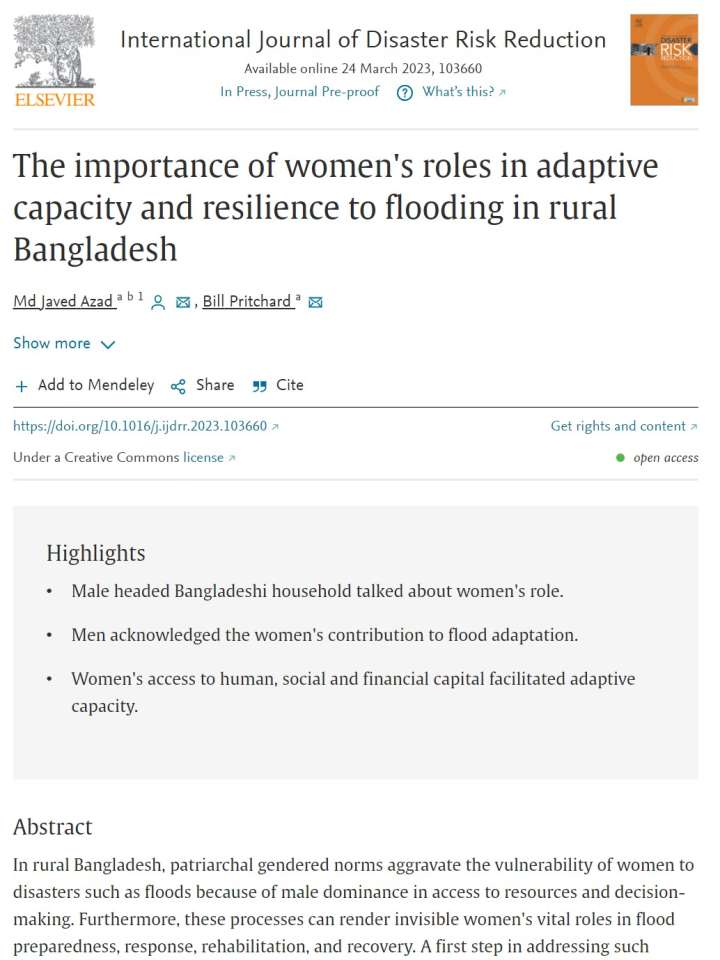The importance of women's roles in adaptive capacity and resilience to flooding in rural Bangladesh
This paper sets out a framework to document women's roles in building adaptive capacity and resilience to floods in rural Bangladesh, using testimony evidence from 20 focus group discussions (FGDs) in the highly flood-prone area of Sirajganj District in north-western Bangladesh. These FGDs consisted of both men and women, providing an inclusive arena for participants to express their perspectives on the roles of women during flood conditions.
Responses were coded within the categories of human, social and financial capital, informed by Sustainable Livelihoods Analysis. In human capital terms, women's formal and informal education and skills were identified as critical community assets. With regards to social capital, bonding, bridging and, to a lesser extent, linking forms of social capital were recognised and valued by FGD participants. In terms of financial capital, women were identified as contributing to household capacity in flood times through livelihood diversification and the protection of household financial assets. These results highlight the need for a more formal and prominent acknowledgement of women's role in disaster policy.
Explore further
